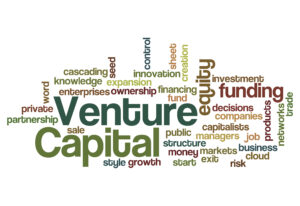Unveiling the Venture Vision: 12 Insights from the Frontline Capital

Insights Into Venture Capital Investing From Seminar 1 of 6 (To register for seminar 2 of 6 FREE, click here.)
“In an era where financial landscapes are constantly being reshaped, it’s crucial for investors to stay ahead of the curve. The Venture Vision Webinar, a joint initiative by GROCO and Impact Venture Capital, recently hosted a panel discussion featuring industry experts including myself, Alan Olsen. We delved into the vital question of how venture returns correlate with other asset classes and why this matters in the broader spectrum of investment strategies.
Our discourse offered deep dives into the implications of diversification, the timing of investments relative to economic cycles, and the transformative role of venture capital in pioneering solutions for tomorrow’s challenges. Join us as we unpack these insights and deep dive into how they can shape a smarter, more adaptive approach to building resilient, forward-looking portfolios.” … A quote from Alan Olsen, CPA, Host of the “American Dreams Show”, and Managing Partner of GROCO.com a family office tax and advisory firm.
00:13 The Unique Advantage of Venture Capital in Diversification
01:57 The Pivotal Role of VC in Navigating Economic Fluctuations and Innovation
3:06 The Strategic Distinction Between Early and Late Stage Venture Capital
04:37 The Strategic Advantage of Investing During Market Downturns
06:18 Economic Constraints Foster Startup Quality and Operational Efficiency
07:44 VC as the Catalyst for Future-Proofing Industries Amidst Transformative Shifts
10:44 The Pervasive Influence of AI in Transforming Traditional Business Models
12:44 Navigating the Hype and Reality of AI’s Capabilities in Practical Applications
14:41 Discerning Authentic AI Innovation from Market Hype in the Venture Space
18:17 Navigating the AI Investment Landscape with Precision and Foresight
21:18 AI as a Catalyst for Real-world Solutions and Human Advancement
22:59 Embracing AI as a Catalyst for Enhancing Human Productivity, Not a Job Stealer
00:13
The Unique Advantage of Venture Capital in Diversification
Venture capital, especially in its early stages, presents a unique diversification advantage due to its imperfect correlation with the returns of public equities. While it offers the potential for high returns over a long period, it is characterized by its illiquidity and variability. These returns typically do not move in tandem with the stock market because the payoff from venture investments is realized in a different market climate than when the investment was initially made.
This temporal disconnect means that venture capital can provide a counterbalance to the fluctuations of more liquid investments like public stocks.
Moreover, the recent financial crises have highlighted a convergence in the behavior of stocks and bonds, diminishing the benefits traditionally associated with diversifying between these two asset classes. Venture capital offers an alternative by having a different response pattern to economic shifts, potentially reducing the overall volatility of an investment portfolio. The key to this strategy is the understanding that venture capital operates on a separate timeline and, therefore, can mitigate systemic risks that simultaneously affect more correlated assets.
In essence, allocating a portion of one’s wealth to venture capital may reintroduce the benefits of diversification that have been eroded in other areas due to the synchronicity of market downturns. The distinct nature of venture capital’s return structure is an essential factor for investors seeking to enhance portfolio robustness in the face of unpredictable economic landscapes.

01:57
The Pivotal Role of Venture Capital in Navigating Economic Fluctuations and Fostering Innovation
In a rapidly evolving world where economic conditions fluctuate between prosperity and downturn, venture capital serves as a crucial engine for innovation. It thrives by identifying prevailing issues across economic climates and investing in solutions that address these challenges. Currently, the emergence of AI is a testament to how venture capital is poised at the forefront of transformational industries, indicating a pivotal shift in business and technology landscapes.
Venture funds have the unique capability to support and accelerate growth in nascent sectors like AI, despite the inherent risks involved. The nature of venture investments is akin to exploring for oil; successes may be infrequent, with the common heuristic being one success in seven attempts, but a single successful venture can yield substantial returns that compensate for other endeavors.
This underscores the strategy of investing in venture funds rather than in individual entities. A fund spreads risk across multiple companies and increases the chances of participating in a game-changing innovation. For investors seeking to leverage the opportunities within transformative industries and manage risk effectively, a long-term commitment to a diversified venture capital fund presents a compelling prospect.
It aligns investor portfolios with the future of technology and business, ensuring participation in the potential success stories that shape our world.
3:06
The Strategic Distinction Between Early and Late Stage Venture Capital
Venture capital necessitates a strategic segmentation into early and late stage investments, each functioning as distinct asset classes with unique risk profiles and return potentials. Advocates like Eric highlight that early stage venture capital is a long-term play, often spanning 8-12 years, which offers the advantage of lower initial valuations. This positions early stage investments as more resilient to macroeconomic fluctuations, providing a buffer against market volatility that can severely impact late stage ventures with higher valuations.
Investing early means that even during turbulent times, these investments are less likely to experience drastic devaluations compared to their late stage counterparts, where a high entry valuation, say at 500 million, could potentially halve, significantly affecting investor returns. However, patience is key in early stage investing, as the gestation period for substantial returns is long but potentially rewarding with significant multiples upon maturity.
For late stage venture capital, the stakes are higher, and the margin for error is slimmer. Success in late stage investing requires a high level of expertise and a keen understanding of market dynamics to ensure that investments are made at the right time and at valuations that can withstand market corrections.
Thus, for investors, choosing between early and late stage venture capital is not merely a preference but a strategic decision that aligns with their risk tolerance, investment horizon, and expertise in navigating the venture landscape. Early stage investing calls for a more patient capital, with the anticipation of growth and recovery over time, while late stage investing demands agility and a nuanced approach to timing and valuation.

04:37
The Strategic Advantage of Investing During Market Downturns
The notion that a crisis presents an opportune moment for investors isn’t new when it comes to public markets, yet it remains underappreciated in the context of private venture investments. The parallel is clear: when market downturns occur, valuations drop across the board, affecting not only publicly traded entities but private companies as well. This phenomenon creates an attractive entry point for savvy investors who recognize that lower valuations today could lead to outsized returns tomorrow.
Historical patterns support this strategic approach. Analyzing past crises reveals a consistent thread: each significant downturn has been followed by the emergence of groundbreaking companies. Indeed, the post-crisis landscape often serves as fertile ground for innovation and value creation. As an academic turned investor, when we scrutinize the data, we observe that some of the most transformative startups—Uber, Airbnb, Square, WhatsApp, Groupon, Glassdoor—were birthed in the ashes of the global financial crisis, seizing the advantage of lower entry valuations.
By investing during or shortly after a crisis, venture capitalists are not merely capitalizing on reduced prices but are also betting on the cycle of recovery and growth. As these startups mature and the crisis becomes a chapter in history books, the investments made at those depressed valuations have the potential to generate exceptional returns. The data underscores that while not an absolute certainty, on average, the years following a crisis have historically been characterized as stronger vintage years for venture capital deployment.
Therefore, the key talking point is not just about the reduced costs of entry but also about understanding and harnessing the cyclical nature of markets, where post-crisis periods can be viewed not as times of universal retreat but as strategic opportunities for long-term investment.
06:18
Economic Constraints Foster Startup Quality and Operational Efficiency
In the face of tightened capital markets, startups are compelled to evolve from a culture of rapid experimentation to one of disciplined growth and sustainability. The era of abundant capital from 2009 to 2021 permitted a kind of “move fast and break things” ethos, where startups could afford to burn through cash with the expectation of readily available future funding rounds. However, this landscape has fundamentally shifted. In the current economic climate, the luxury of indefinite runway extension has vanished, and the pressure to achieve profitability has intensified dramatically.
This environment acts as a crucible for quality and fitness in startups. Only those with robust business models, sound operational practices, and a clear path to profitability can hope to survive and thrive. These constraints necessitate a laser focus on achieving cash flow positivity much sooner, which in turn fosters a culture of efficiency and effectiveness.
Moreover, the competitive hiring frenzy has cooled, allowing startups to attract and retain top-tier talent. In more flush times, the best and brightest might scatter across numerous ventures, lured by the promise of the next big thing. Now, these individuals are more selective and likely to commit to a vision they believe in, one that demonstrates potential for real impact and growth, even in lean times. The result is a startup ecosystem characterized by high-caliber teams dedicated to the mission of building resilient, profitable enterprises from the outset.
In sum, this new era of necessity-driven discipline in the startup world could very well lead to a more stable and sustainable breed of companies, with the agility to adapt and the strength to endure long-term. It underscores the adage that constraints can indeed drive creativity and excellence, leading to an ecosystem where the quality of startups is not just a differentiator, but a requirement for survival.

07:44
Venture Capital as the Catalyst for Future-Proofing Industries Amidst Transformative Shifts
In a world where traditional business models are disrupted, and old paradigms are upended – exemplified by the mass transition to remote work during the COVID-19 pandemic – venture capital emerges as a vital force in driving innovation and addressing the critical challenges of the future. The significant shift in how businesses operate and scale – moving from labor-intensive growth to technology-driven efficiency – underscores the necessity for venture capital to fund the solutions that will redefine industries.
Today’s companies are grappling with a labor shortage as baby boomers exit the workforce, compounded by the influx of fewer entrants to fill those gaps. This reality propels the necessity for artificial intelligence and other advanced technologies to fill the void. Yet, with innovation comes new challenges, such as the environmental impact of AI computations, highlighted by the energy-intensive cooling requirements mentioned for systems like ChatGPT.
This presents a paradox where the tools designed to propel us forward also have unintended consequences that must be addressed.
The solution to this problem isn’t in attempting to mirror the past but in investing in ventures that are actively crafting the future. The role of venture capital is thus not merely financial but foundational to the next industrial evolution. It enables companies to navigate through the current paradigm shift, focusing on sustainability and technological innovation to overcome present challenges such as the semiconductor chip backlog and the environmental impact of advanced computing.
Venture capital has the unique ability to anticipate and act upon future trends, rather than being reactive to them. It invests in the ideation and creation of new technologies, business models, and industries that are equipped to transform society. This forward-thinking approach is crucial, as the companies that will lead the next generation are those that not only adapt to the current shifts but also redefine the way we think about work, technology, and sustainability.
As industries transform, venture capital stands as a critical ally, investing in ventures that will not only survive the transition but will also set the stage for revolutionary advancements. It’s not just about predicting the future; it’s about creating it, solving imminent problems with innovative solutions that will shape the way we live and work. Hence, the essence of venture capital goes beyond economic growth; it’s about catalyzing a future that is resilient, sustainable, and transformative.
10:44
The Pervasive Influence of AI in Transforming Traditional Business Models Across Sectors
The evolution of AI from the domain of niche, unheard startups to a critical component of mainstream business strategy is reminiscent of the early internet era. In the nascent stages of the internet, investment in digital startups was considered a venture into the unknown. However, it quickly became a benchmark for gauging the competitive edge among established companies. Today, AI is at a similar inflection point, shifting from a novel investment proposition to an essential productivity enhancer that distinguishes leaders in every industry, from automotive to consumer goods.
As AI matures, it is being seamlessly woven into the fabric of various sectors, fundamentally altering the performance metrics by which companies are evaluated. Established businesses are no longer just competing based on traditional parameters such as market share or product innovation; they are now differentiated by their adeptness at integrating AI into their processes to gain a productivity advantage.
This transformation is not limited to incremental improvements but is giving rise to entirely new business models and opportunities. For instance, the convergence of AI with digital medicine is spawning innovations like synthetic medical records that simultaneously advance medical research and ensure privacy compliance. This not only accelerates drug development but also opens up new investment avenues focused on the intersection of AI and healthcare.
Similarly, tools like CrowdSmart are repurposing AI for enhancing group decision-making, thereby addressing inherent biases and boosting marketing efficacy. The impact of such applications is significant, offering both large corporations and small businesses the leverage to optimize their investments and outperform their competition.
The talking point highlights the ubiquity of AI as it transcends its original confines, creating cross-domain applications that signal a radical shift in how value is created and measured in business. Investors and companies alike must recognize that AI’s role transcends automation and cost savings—it is a linchpin in the current renaissance of business processes and models. The companies that will thrive are those that not only adopt AI but innovate at the confluence of AI and their core competencies, reinventing themselves to lead in a world where adaptability is synonymous with competitive advantage.
12:44
Navigating the Hype and Reality of AI’s Capabilities in Practical Applications
In the burgeoning landscape of artificial intelligence, there’s a palpable rush of capital and talent toward AI initiatives, fueled by the promise of transformational change across industries. However, this enthusiastic march toward an AI-infused future is not without its pitfalls. The chasm between academic theory and practical, real-world application of AI remains one of the most significant challenges in the field.
As Eric rightly pointed out, there is an abundance of interest and investment in AI, but converting cutting-edge research into scalable, effective solutions is still an area that requires considerable effort and development.
Chat-GPT, with its remarkable conversational abilities, has indeed captured the public imagination. Yet, it is not immune to the occasional misstep, underscoring the nascent stage of AI’s evolution. The instances where it fails to deliver accurate responses are reminders that while AI can simulate understanding, it does not ‘understand’ in the human sense and is bound by the limitations of its design and training data.
The allure of AI for businesses is undeniable, but a discerning approach is crucial. Not all AI is created equal, and the mere inclusion of AI in a company’s operations is not an automatic indicator of value or success. The real measure of AI’s worth is in its application to effectively address tangible problems that are otherwise insurmountable. As we chart the course through the ‘wild west’ of AI’s expansion, the focus must shift from AI as a buzzword to AI as a tool for specific, meaningful problem-solving.
Moreover, the challenge of computing power is becoming increasingly pronounced. The scalability of AI in a business context raises questions not just about technical infrastructure but also about environmental sustainability. The processing demands of models like Chat-GPT are immense, and as AI becomes more pervasive, ensuring that this does not lead to unsustainable energy consumption is a concern that must be addressed.
This talking point would emphasize the need for a tempered, realistic approach to AI. It’s not enough to jump on the AI bandwagon; stakeholders must be critical of what AI is truly achieving. The path forward is to support AI developments that not only demonstrate technical prowess but are also aligned with ethical standards, environmental considerations, and a clear vision for solving the pressing issues we face as a society.
14:41
Discerning Authentic AI Innovation from Market Hype in the Venture Space
Impact Venture Capital’s long-standing commitment to AI investment since 2016 exemplifies a forward-thinking approach, one that predates the recent explosion of enthusiasm surrounding artificial intelligence. However, as AI begins to ‘disrupt itself,’ the venture capital community faces a dual challenge: discerning true innovation from hype and ensuring the robustness and accuracy of AI technologies.
To echo the insights of our veteran advisor, Kati Walcott, the rapid evolution of AI has led to significant challenges, notably the integrity of data sources. AI systems designed to scrape the web and compile vast databases for quicker reference are only as reliable as the information they gather. The burgeoning issue of AI echoing and perpetuating inaccuracies found online is a testament to the technology’s infancy and the dire need for mechanisms that can verify and validate the information used to train AI models.
The irony is not lost on us that AI, in its quest for efficiency, has stumbled upon the classic problem of ‘garbage in, garbage out.’ Speed of computation and response must not be mistaken for veracity. Hence, the current imperative is not only to innovate but also to install rigorous guardrails that ensure the fidelity of AI-generated content.
Additionally, the venture capital landscape is currently witnessing a proliferation of startups branding themselves as AI-focused, reminiscent of the rush to adopt ‘blockchain’ as a buzzword during its hype cycle. The distinction between truly AI-driven companies and those merely ‘putting on a nice coat of paint’ is critical. As we sift through the clamor for AI-driven investment opportunities, due diligence requires us to probe beyond superficial claims and understand the depth, sophistication, and genuine utility of the AI solutions proposed by startups.
This talking point underscores the responsibility of investors to look beyond the allure of AI as a trendy investment theme and evaluate the substantive, transformative potential of AI in a startup’s value proposition. It’s crucial to discern whether a company is genuinely leveraging AI to solve complex problems and create value, or if AI is simply a veneer to attract investment. As the field matures, the capacity to differentiate between these will become a definitive skill for investors in the AI space.
18:17
Navigating the AI Investment Landscape with Precision and Foresight
As stalwarts in the AI investment arena since 2016, Impact Venture Capital has been at the forefront of identifying and nurturing authentic artificial intelligence innovations. This tenure has provided us with a unique vantage point to witness the technological crescendo and the accompanying cacophony of market hype. In the current climate where AI is evolving to the point of self-disruption, it is crucial for the venture capital community to fine-tune its ability to separate the wheat from the chaff.
Our esteemed colleague, Kati Walcott, brings to light a pivotal concern—the veracity of data which serves as the lifeblood for AI systems. As we observe AI’s propensity to replicate online misinformation, it becomes clear that the adage ‘garbage in, garbage out’ has never been more pertinent. The velocity at which AI systems process and disseminate information is a double-edged sword; without a stringent validation process, the rapidity can lead to the mass propagation of inaccuracies.
The venture capital ecosystem is now teeming with enterprises that superficially append AI to their brand narrative. This phenomenon mirrors the previous blockchain fervor and necessitates a critical examination of whether these companies are substantively integrating AI or merely leveraging it as a façade for valuation inflation.
This juncture in AI’s evolutionary trajectory calls for investors to exert a higher degree of discernment. It demands an incisive assessment of whether AI is being deployed as a genuine problem-solving tool or if it is simply a buzzword designed to entice funding. Investors are now the gatekeepers, separating authentic AI innovation from the mere semblance of it.
In crafting this talking point, we aim to crystallize the message that Impact Venture Capital is not only invested in AI but is also invested in the integrity and potential of AI as a transformative force. Our mission is to propel AI that addresses real-world challenges and to foster startups that harness its power responsibly, paving the way for advancements that transcend the initial allure of novel technology.

21:18
AI as a Catalyst for Real-world Solutions and Human Advancement
The story of an individual pioneering AI for predicting emotional intelligence, which has profound applications in election forecasting and human resources, culminates in a staggering 11.9 billion-dollar exit, illustrating the immense value and transformative potential AI holds when applied innovatively. As investors and enthusiasts in the AI landscape, such narratives not only inspire but also direct our attention to the core of what makes AI an invaluable asset: its application to solve concrete, real-world problems.
The successful use of AI in probabilistic computing and decision trees to create an audit trail for AI’s reasoning process is a vital step towards transparent and explainable AI. It is essential for maintaining trust and accountability in AI systems, particularly as their influence in decision-making grows. This transparency becomes even more critical when considering AI’s role in health sciences, such as leveraging AI to uncover potential cures for cancer by analyzing and modifying DNA cells.
These groundbreaking advancements serve as a beacon, signaling the dawn of a new era where AI is not just a buzzword or a technological trend but a pivotal instrument in addressing some of humanity’s most pressing challenges. As we navigate the vast expanse of the AI domain, the emphasis must shift from merely branding with “artificial intelligence” to probing deeper into the problem-solving capabilities of these ventures.
Our focus must align with ventures that not only profess AI competency but demonstrate an intrinsic capacity to harness its full potential. It is about the substantive issues they aim to address and their internal competencies to deliver on their mission. In this regard, AI ceases to be a standalone marvel; it becomes an indispensable partner in innovation, committed to the betterment of society.
In framing this talking point, we underscore a future where AI’s merit is measured by its contribution to human welfare and its effectiveness in converting the theoretical into tangible benefits. Our investment philosophy is rooted in this vision—supporting AI endeavors that are not just technologically sound but also empathetic to human needs, embodying the true spirit of innovation that stands to benefit humanity at large.
22:59
Embracing AI as a Catalyst for Enhancing Human Productivity, Not a Job Stealer
In discussions about AI and its impact on the workforce, there’s often a tug-of-war between concern over job displacement and optimism about technological advancement. I stand with the optimists, holding a firm belief in the resilience and adaptability of the human spirit. Just as the internet and mobile technology revolutionized our lives and work, AI promises to be the next frontier in augmenting human productivity.
The narrative that AI is a harbinger of job losses oversimplifies the conversation and overlooks the immense potential AI holds as a liberating tool. By taking over repetitive and time-consuming tasks, AI can free up to 70-80% of an individual’s time, which can then be channeled into more creative, strategic, and interpersonal tasks that machines cannot perform. This shift can lead to a profound increase in productivity and job satisfaction.
It’s essential to perceive AI not as a replacement but as a partner that shoulders the burden of menial work, enabling humans to excel in areas where they naturally outperform machines—critical thinking, empathy, creativity, and nuanced judgment. The onus is on both individuals and companies to learn to harness the power of AI, turning it to their advantage and ensuring they remain indispensable in an AI-augmented landscape.
The role of AI in the workplace isn’t about steamrolling jobs but about streamlining processes, eliminating drudgery, and optimizing performance. The real threat lies not in the technology itself, but in the reluctance to adapt and the failure to acquire the skills necessary to coexist with AI. History has repeatedly shown that adaptability is key to survival, and the same applies to the advent of AI.
Therefore, our message is clear: AI should be viewed as a potent tool that supports and amplifies the capabilities of the workforce. It’s a call to action for proactive learning, upskilling, and strategic implementation of AI within businesses to ensure that rather than stealing jobs, AI transforms them, making every role more impactful and every worker more integral to the success of their organization.
Content on this page includes AI generated material based off of transcriptions from this event.
To view more content like this, click here to subscribe to our YouTube channel
And click here to receive our FREE Newsletter.
Jonathan Cotten on The Business of Character
Why Character Is the Ultimate Business Strategy In the rush to scale fast, dominate markets, and chase the next big exit, the word “character” often feels like an afterthought in business circles. Jonathan Cotten, however, believes it belongs at the very center of any business worth building. Cotten, CEO of Easystep Enterprises and author of The…
Faith, Freight & “Slaying the Tomb”
How the Moscrips Drove From Freight Tech to Faith-Fueled Media When Scott Moscrip launched Truckstop.com from a spare bedroom in 1995, he didn’t just build a freight-matching marketplace—he rewired a blue-collar industry for the Internet age. Thirty years, five kids, and one mayoral term later, the Idaho technologist and his wife, Carmen, are chasing an…
From the Streets to Self-Reliance
How Joseph Grenny’s Other Side Village Is Rewriting the Homelessness Playbook A 2 a.m. Alarm and a Box of World-Class Doughnuts At two o’clock each morning in downtown Salt Lake City, former rough-sleepers slip into spotless aprons, fire up industrial mixers, and begin turning out pillowy brioche rings glazed with passion-fruit icing and drizzled…
Building a Legacy: A Fireside Chat with Martin Luther King III
In a thought-provoking fireside chat at our Legacy Builder’s Conference, Martin Luther King III shared profound insights on the concept of legacy, leadership, and the moral imperatives facing society today. Speaking with Alan Olsen, he reflected on his father’s enduring impact and his own efforts to carry forward that mission in today’s world. Defining His…




